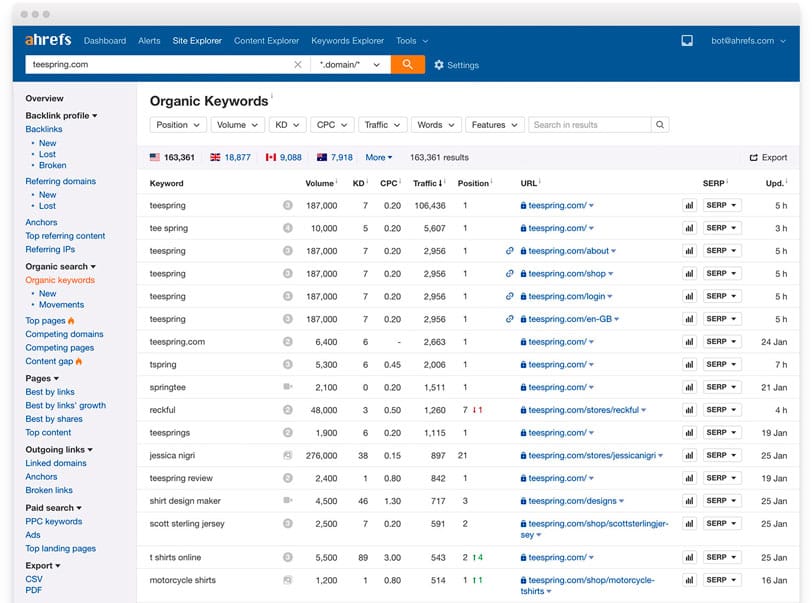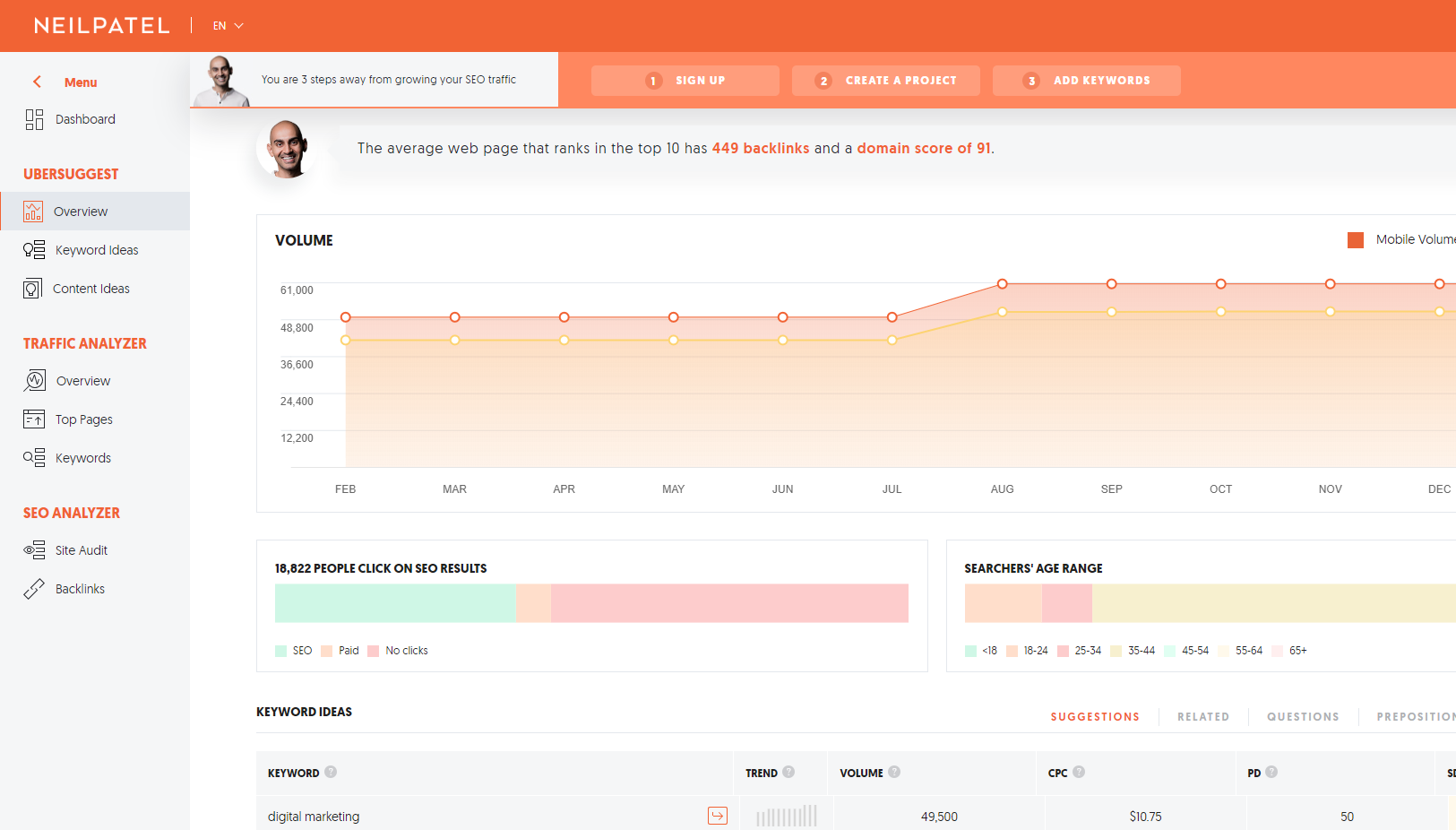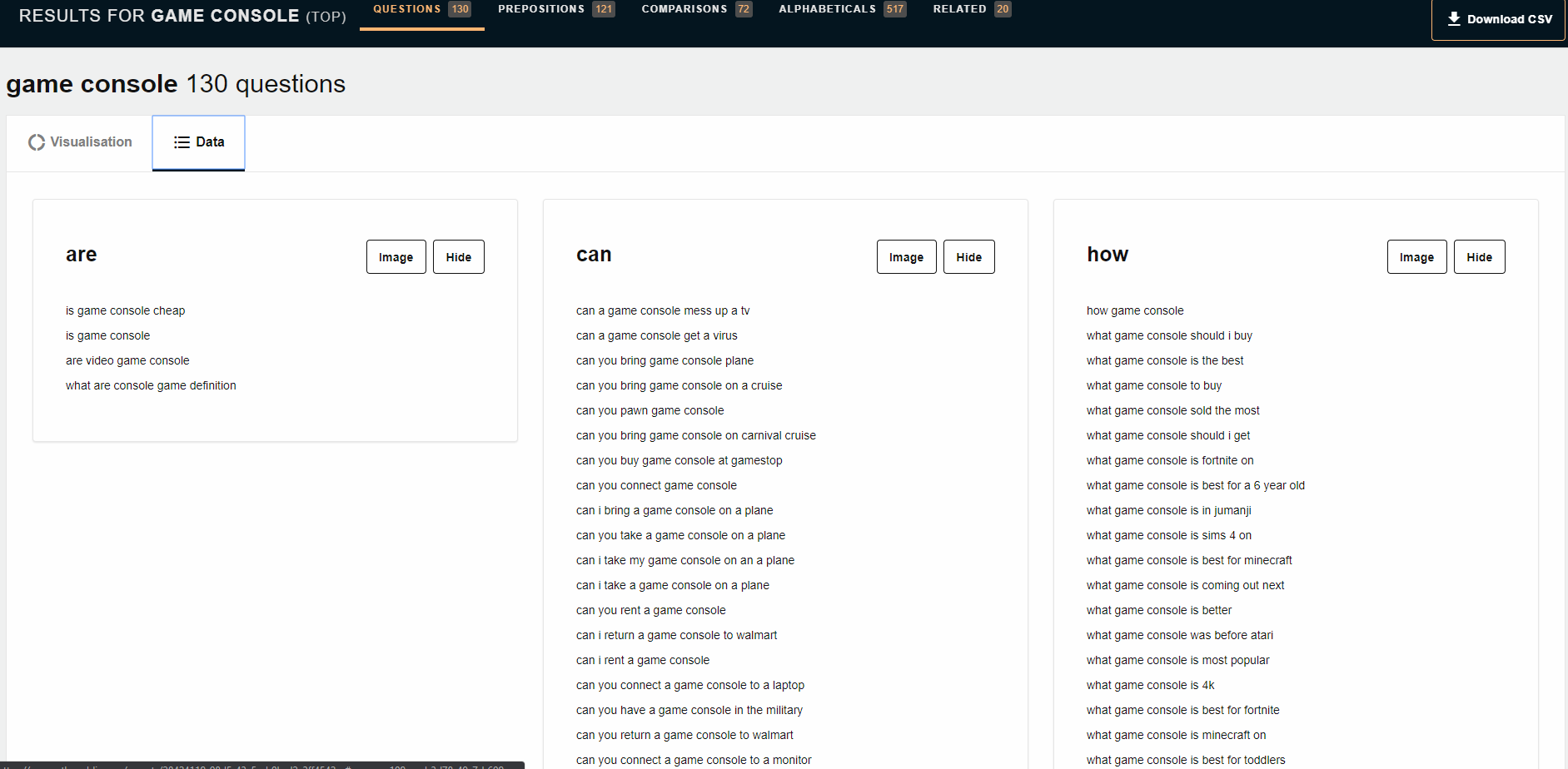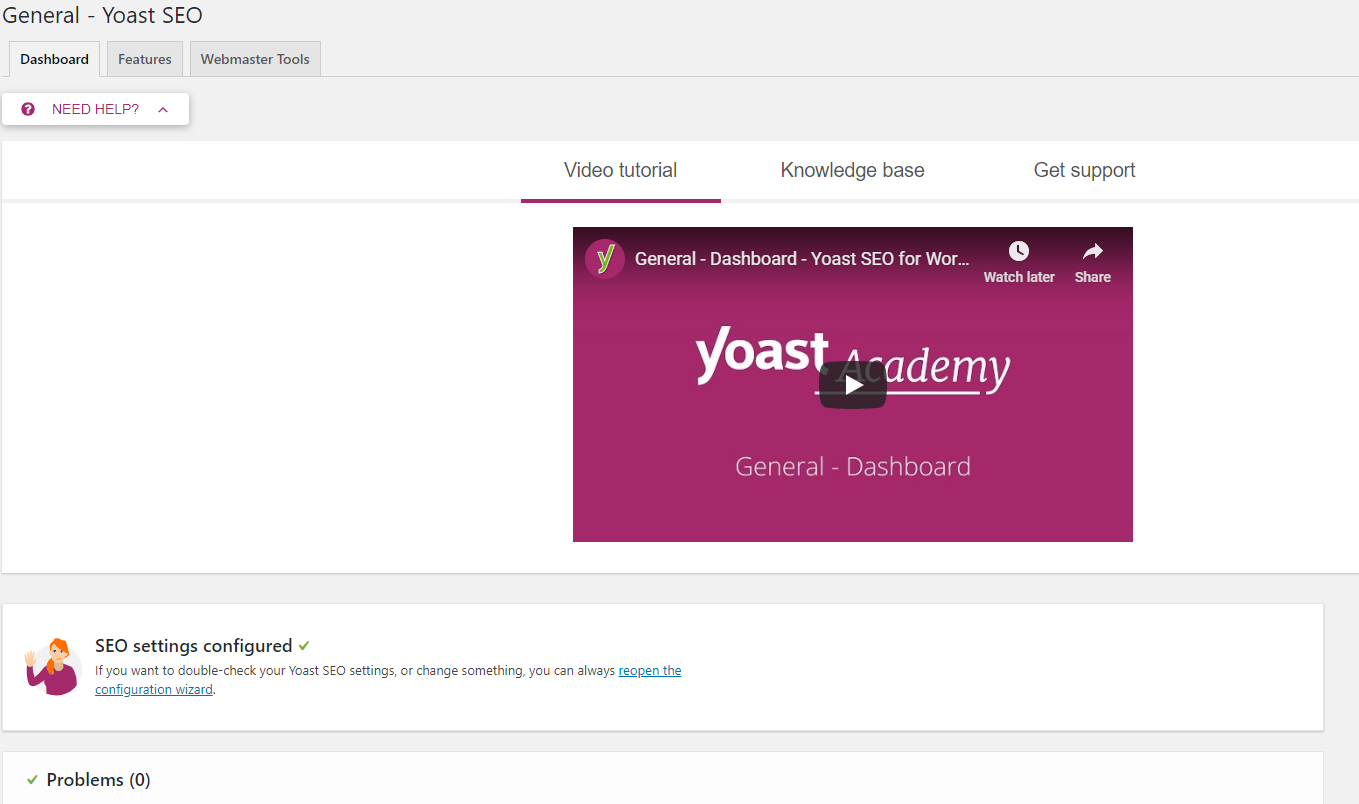
Getting started in SEO can be overwhelming, from the various technical on-page SEO optimizations, back-linking analysis, and content marketing, there’s a lot to get right. Fortunately, there’s a host of tools you can use to make this process easier. We’ve compiled a list of 10 different tools we find helpful with the SEO process when working with clients or other projects.
Reasons why you need SEO Tools
Analyze Competitor SEO Strategy
In a world full of shady marketing and SEO tactics, it can be easy to get pulled to the Dark Side. Fortunately, you can scratch that itch by spying on the competition without crossing any ethical lines.
Many SEO tools allow you to dig into your competition’s SEO strategy. Not only can you see their traffic numbers and rankings, but identify where their backlinks are coming from and how their content is performing across platforms.
Save Time and Money on Manual SEO Audits
Comprehensive SEO audits deliver a wealth of knowledge when it comes to identifying website issues. Unfortunately, in-depth audits often take loads of time and money to generate by hand. SEO tools can cut this time and cost in half while delivering a better quality of results.
SEO reports are a roadmap for what needs to be fixed on the website – from on-page SEO to content to links to load speed. Working from an SEO audit is the surest way to build a rock-solid SEO foundation for your site.
Find High-Converting Keywords for Content & Content Marketing
Finding the right keywords for your website is easier said than done. It’s not enough to simply identify industry terms that have decent search volume and low competition. Many other factors come into play.
For one, the intent behind the search terms users are searching for matters more than ever.
Are users looking:
- For free information?
- To solve a problem?
- To buy a product?
You will need to answer these questions to properly execute your content strategy.
Monitor SEO Progress and KPIs
Many website owners look at their rankings as the primary measure of their SEO success. But there are many other metrics that are worth considering – primarily, organic traffic and conversions. These can be difficult to calculate on your own. Fortunately, SEO tools make it super clear when your SEO efforts are paying off.
The key performance indicators (KPIs) you measure will depend on your goals and business model. Some of these may include:
- Keyword rankings
- Domain authority
- Number of backlinks
- Traffic
- Form fills
- Sales
- Shares
- Clicks
- Social media comments
Always know if your SEO efforts are paying off. Use SEO tools to track what matters most for your website.
Visualize and Conceptualize Data
Not every SEO pro is a numbers person. Fortunately, there are plenty of SEO tools to help you make sense of the data through data visualization.
What Is Data Visualization?
Data visualization is a way of presenting data as a graph or chart. Rather than having to decipher the meaning of numbers yourself, data visualization tools conceptualize and analyze the numbers in a way that makes sense.
This is extremely helpful if you are mapping your SEO progress over time, looking at user demographics, or are analyzing the success of your marketing campaigns.
Data Visualization with SEO Tools
Many SEO tools will generate graphical reports that allow you to see and analyze data at a glance. These can be particularly helpful when the time comes that you need to explain complicated metrics to clients.
Communicate Clear ROI to Clients
SEO tools also make it easier to showcase results to your clients. If you are a marketer or SEO specialist, your clients want to see not only an increase in traffic but also in sales. SEO tools make it super evident what’s working and what isn’t.
If you are able to articulate how many leads or how much revenue you are generating for a client as a result of their SEO investment, they are more likely to stick with you for the long haul.
It also makes it easier to position a value to add or upsell to help take it to that next level.
10 Easy SEO Tools Experts Use in 2020
Google Search Console (formerly Google Webmasters Tools)
Pricing: FREE
This is an excellent way for newbie webmasters to get started with SEO. The arsenal of tools includes (but not limited to) Google Analytics and Google Tag Manager, which are both very important for SEO.
Google also offers a free chat with a representative via Hangouts. You can make use of this feature during regular office hours for assistance with site issues such as mastering the various tools and detecting malicious activity.
MOZ
Pricing: FREEMIUM
Moz Pro offers a vast number of SEO tools across areas like keyword research, position monitoring, and crawling. We’d like to see the company better combine these products, which will improve an SEO platform that is already our Editors’ Choice.
SEMRush
Pricing: FREEMIUM
SEMrush is a well-balanced SEO optimization platform with strong tooling across domain monitoring, keyword research, and crawling. It’s not a perfect tool, but genuinely innovative features like SEO Ideas can give your business a serious edge.
If you’re looking for analytics reports that help you better understand your website’s search data, traffic, or even your competitors, this is the tool for you.
Ahrefs
Pricing: FREEMIUM
Out of all the SEO tools out there, thousands of online marketers, small business owners, and SEO’s prefer to use Ahrefs to help them improve their search rankings.
Their Site Explorer is the best among backlink analysis tools. They also have the Content Explorer, which searches the web for the most popular content for any topic or keyword.
Ubersuggest
Pricing: FREE
Ubersuggest is a keyword finder tool that helps you identify keywords and also the search intent behind them by showing the top ranking SERPs for them. From short to long-tail phrases, you can find the right terms to use on your website with hundreds of suggestions from this free great keyword tool. The metrics they include in their report are keyword volume, competition, CPC, and seasonal trends. This tool can help determine if a keyword is worth targeting and how competitive it is.
Answer The Public
Pricing: FREEMIUM
Answer The Public is a keyword tool that visualizes search questions and suggested autocomplete searches in an image called a search cloud. It’s a good starting point for question queries that can be turned into paid ads and organic traffic to help with your Keyword Research.
Screaming Frog (SEO Spider Tool)
Pricing: FREEMIUM
Screaming Frog is considered one of the best SEO tools online by experts. This can help you save time by having this tool analyze the website super fast when performing site audits.
This tool also informs you of duplicate content, errors to fix, bad redirections, and areas of improvement for link building.
Yoast SEO (plugin)
Pricing: FREEMIUM
Yoast is the most trusted name in WordPress SEO. It’s also the most installed plugin. Most experts use Yoast on their WordPress website, and it’s pretty popular for a reason. It gives you tons of flexibility over your site’s content, letting you set up titles, meta descriptions, and social sharing information on a per-post basis. It gives you an easy way to set up a sitemap, adds some basic schema, and is generally pretty beginner-friendly.
Pitchbox
Pricing: PAID
Pitchbox isn’t exactly an SEO tool. But when you are link building, there’s usually a lot of outreach involved. A lot.
Pitchbox makes your overall outreach efforts 10x easier than it would manually. Their email sequence feature lets you set up follow-up emails automatically. They also have a couple of SEO features, such as link monitoring.
Their plans allow multiple users. So if you’re working with a team, this will come in handy.
Buzzstream
Pricing: PAID
BuzzStream is a tool designed to make email outreach easier and more efficient. It automates a lot of the legwork involved with outreach, like:
- Researching prospects
- Finding email addresses
- Sending follow-up emails
- Tracking reply rates
It helps you do all of your outreach in one place.
CONCLUSION
The best SEO tools on this list aren’t enough. They will help you better understand how you can improve your website’s optimization but they won’t do the work for you. You’re going to have to put in the work to get the results you want.
The tools above can definitely help you achieve success in 2020. If you’re on a budget most of these tools have free features or trials you can play around with. Try them out. Think of these SEO checker tools as mentors telling you what you need to improve on. And follow their suggestions to skyrocket your growth.













